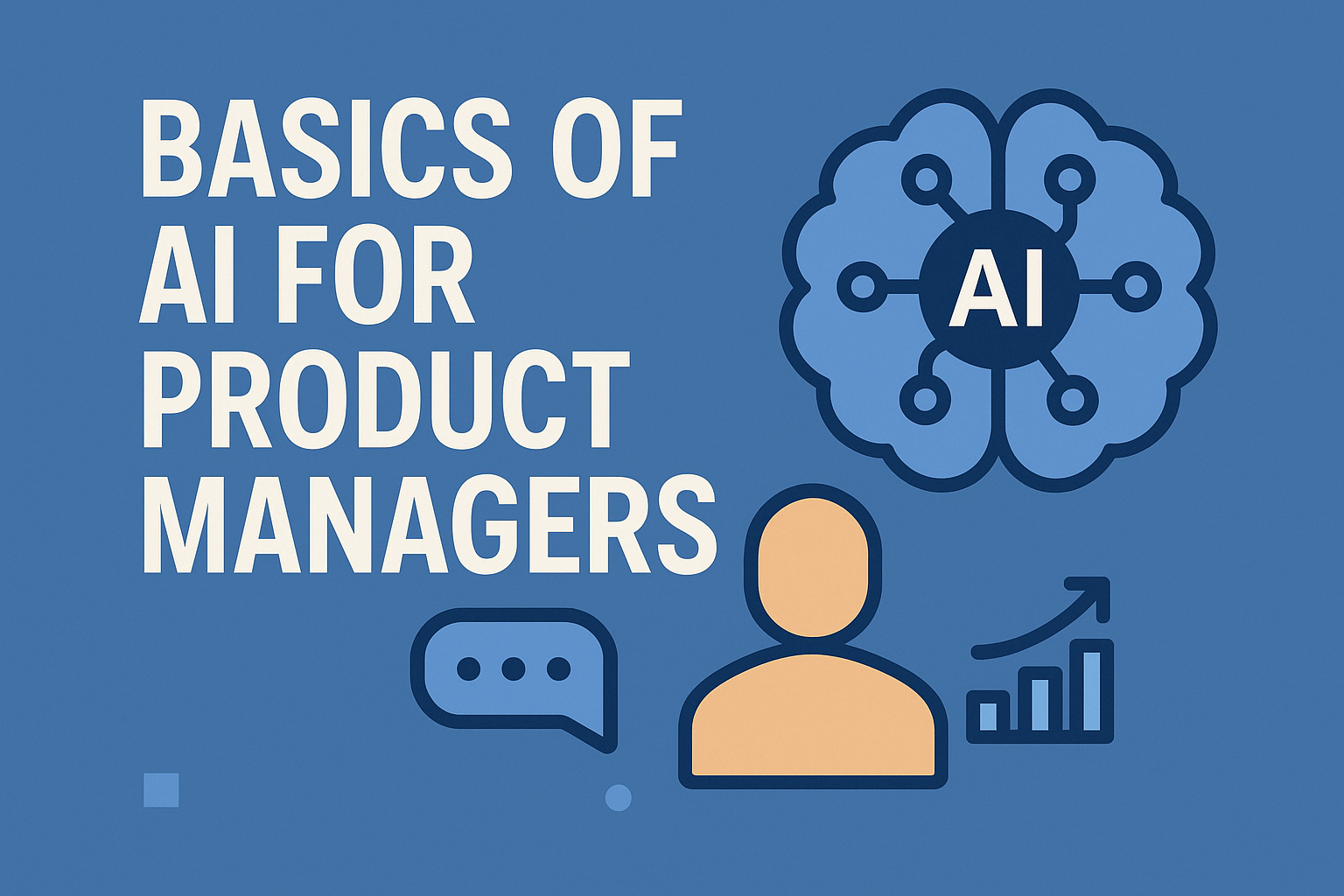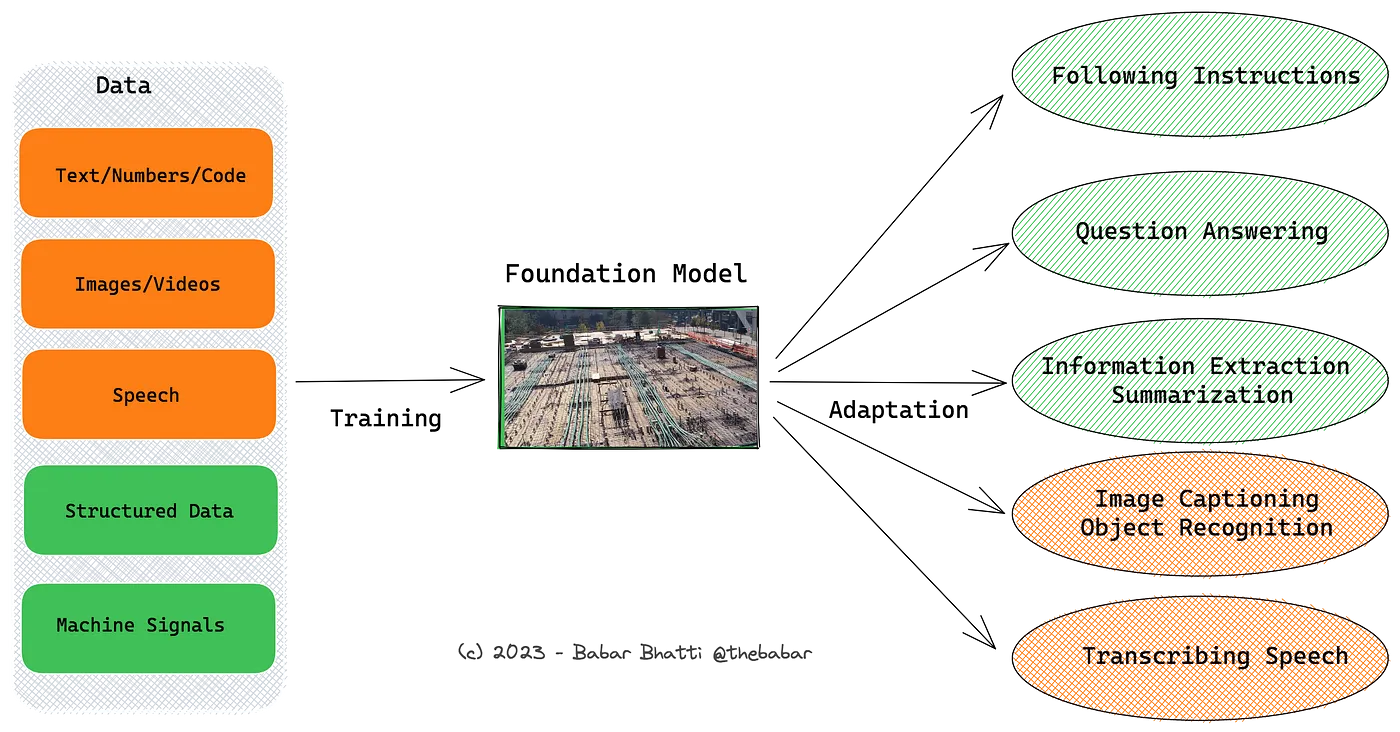Basics of AI for Product Managers
Product Management
AI for Product Managers
Introduction
Artificial Intelligence (AI) is transforming industries at an unprecedented pace, moving from a futuristic concept to a key component of modern business strategy. The global AI market is anticipated to reach $184 billion by 2024, growing at an annual rate of 28.46%, and is expected to soar to $826.7 billion by 2030. This explosive growth is largely driven by advancements in foundational models and large language models, which are reshaping how companies leverage data to innovate and create new products and services. For product managers, understanding AI—especially generative AI and foundational models—is no longer optional. Mastering these technologies is crucial for staying competitive and driving product success.
Core Concepts of AI for Product Managers
To effectively incorporate AI into product management, it's essential to understand its core technologies and how they interconnect. Here’s a breakdown of the fundamental concepts every AI product manager should know:
-
Artificial Intelligence (AI): At its core, AI involves the creation of machines that can mimic human intelligence. This broad field includes a variety of technologies designed to perform tasks that typically require human intellect, such as decision-making, problem-solving, and language comprehension.
-
Machine Learning (ML): ML is a subset of AI focused on developing systems that learn and improve from experience without being explicitly programmed. ML models identify patterns in data, making them invaluable for tasks like personalization, predictive analytics, and automation, which are crucial for modern product management.
-
Deep Learning: A more advanced subset of ML, deep learning utilizes large neural networks to process vast amounts of data and learn complex patterns. It’s especially effective in tasks like image and speech recognition, which require understanding nuanced data, and it’s integral for building sophisticated AI features.
-
Generative AI (GenAI): This cutting-edge area within AI focuses on creating new content based on existing data. GenAI can generate anything from text and images to music and videos, providing endless opportunities for innovation in product development and content creation. Understanding generative AI meaning and applications is key for product managers looking to integrate AI into their strategies.
Exploring Generative AI and Foundation Models
Generative AI has gained significant attention for its ability to produce creative, human-like outputs. One of the most impactful advancements in this field is the development of Foundation Models (FMs).
What Are Foundation Models?
Foundation models are large-scale neural networks pre-trained on extensive datasets to perform a wide range of tasks. Unlike traditional models, which are typically designed for specific functions, foundation models are adaptable and capable of understanding and generating natural language, creating images, and even engaging in dialogues. This versatility makes them a powerful tool for product managers aiming to leverage AI to develop innovative features and streamline operations.

Key Characteristics of Foundation Models
-
Adaptability: Foundation models can be fine-tuned for specific tasks, making them highly versatile across different applications. Whether it’s customer service chatbots, content generation, or complex data analysis, these models can be tailored to meet diverse needs, offering product managers the flexibility to innovate.
-
Scalability: Built on large datasets, foundation models can handle vast amounts of data, allowing them to scale efficiently as product demands grow. This capability is crucial for product managers who need to ensure their AI solutions can evolve alongside their products.
-
Emergent Capabilities: As these models are trained on diverse data, they often develop unexpected capabilities, such as understanding complex language nuances or generating realistic images from text descriptions. This emergent behavior can provide product managers with unique insights and creative tools to enhance their products.
Why AI Matters for Product Managers
Integrating AI into the product development process offers numerous benefits for product managers:
-
Enhanced Customer Insights: AI can analyze vast amounts of user data to uncover deep insights about customer behavior and preferences, enabling more personalized and effective product experiences. By leveraging these insights, AI product managers can make data-driven decisions that align with customer needs and market trends.
-
Improved Decision-Making: With AI's predictive capabilities, product managers can make more informed decisions, anticipate market trends, and adjust strategies proactively. This strategic foresight can lead to better product positioning and higher customer satisfaction.
-
Increased Efficiency: Automating routine tasks with AI can free up time for product managers to focus on strategic initiatives, leading to faster time-to-market and improved product quality. This efficiency not only optimizes resources but also accelerates innovation cycles.
-
Innovative Features: By leveraging generative AI, product managers can create unique features and experiences that differentiate their products in the marketplace. From personalized content generation to interactive user interfaces, the possibilities are vast for enhancing user engagement and satisfaction.
Challenges and Considerations in AI Implementation
While AI presents significant opportunities, product managers must also be aware of the challenges and considerations associated with its implementation:
-
Data Privacy: Ensuring that AI systems handle user data responsibly is crucial for maintaining trust and complying with regulations. Product managers must prioritize robust data protection mechanisms and ensure compliance with standards like GDPR to safeguard user information.
-
Bias and Fairness: AI models can inadvertently perpetuate biases present in their training data, leading to unfair outcomes. It is essential to implement fairness checks and use diverse, representative datasets to minimize bias and promote equitable AI practices.
-
Complexity and Resource Intensity: Developing and deploying AI models can be complex and resource-intensive, often requiring significant computational power and expertise. Product managers should assess the return on investment and consider leveraging existing models or partnerships to minimize costs and streamline implementation.
Conclusion
As AI continues to evolve, product managers who invest in understanding and applying these technologies will be better positioned to lead their products to success. By leveraging the power of AI, product managers can enhance user experiences, drive innovation, and maintain a competitive edge in a rapidly changing market. Whether it’s through improving decision-making, increasing efficiency, or creating groundbreaking features, AI offers endless possibilities for those willing to embrace it. Now is the time to explore the potential of AI for your products and start integrating these powerful tools into your product management strategies.
Stay ahead of the curve by continuing to educate yourself on AI trends and developments, and ensure you are equipped to lead your teams and products into the future.
Sources:
For feedback, suggestions, or topic ideas, please email me at [surya8352@gmail.com]
